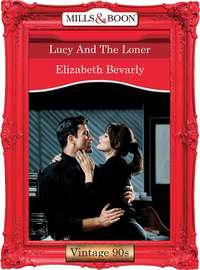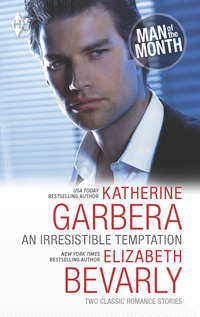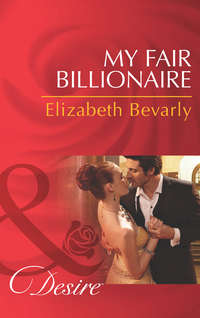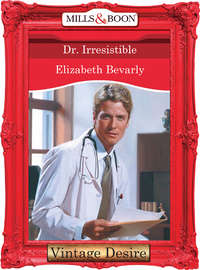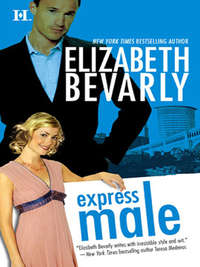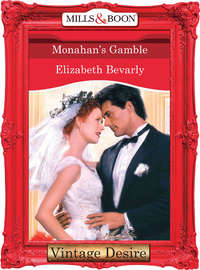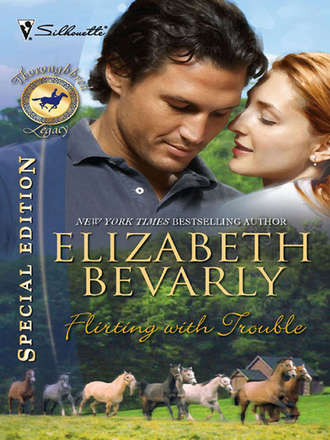
Полная версия
Flirting with Trouble

Dear Reader,
I always have a lot of fun when I join other authors to write a series, but that fun is doubled when the subject matter is near and dear to my heart. My family tree has very deep roots in Kentucky, and I currently live right in horse country. I drive past Thoroughbred farms no matter my destination, because they are literally right up and down the road from me. Our state’s slogan is “Unbridled spirit,” and the reason for that is obvious to anyone who’s ever watched one of those majestic animals run. They are joy personified. Horsified. You know what I mean.
I tried to capture both my affection for Kentucky and my admiration of Thoroughbreds when I wrote Flirting with Trouble. And I hope I captured the flavor of Australia, too, for the parts of the book that take place in that wonderful country. Daniel Whittleson is like many horsemen I’ve encountered in his love for the animal, and he’s like many heroes I’ve created in his love for Marnie Roberts. Marnie, too, was delightful to write, because she embodies the hopes and fears of everywoman and she rises to face those hopes and fears with the same sort of bravery.
Best wishes,
Elizabeth Bevarly
Flirting with Trouble
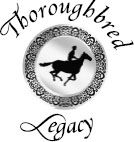
Elizabeth Bevarly

www.millsandboon.co.uk
ELIZABETH BEVARLY
is a RITA® Award-nominated author of more than sixty works of contemporary romance. Her books regularly appear on the USA TODAY bestseller list and the Waldenbooks bestseller lists for romance and mass-market paperbacks. Her novel The Thing About Men hit the New York Times extended bestseller list, as well. Her novels have been published in more than two dozen languages and three dozen countries, and there are more than ten million copies in print worldwide. She currently lives in a small town in her native Kentucky with her husband and son. Visit her online at www.elizabethbevarly.com.
For everyone who has roots in the Bluegrass State,
whether homegrown or transplanted.
Unbridled spirit indeed.
Special thanks and acknowledgment are given to Elizabeth Bevarly for her contribution to the Thoroughbred Legacy series.
Contents
Chapter One
Chapter Two
Chapter Three
Chapter Four
Chapter Five
Chapter Six
Chapter Seven
Chapter Eight
Chapter Nine
Chapter Ten
Chapter Eleven
Chapter Twelve
Chapter Thirteen
Epilogue
Chapter One
As he settled his hand on the corral gate and shot his gaze over virtually miles of white plank fencing that crisscrossed and enclosed Quest Stables, it occurred to Daniel Whittleson that a June morning in Kentucky was about as close to heaven as a man could find. And this was only the first of the month. Sure, the dogwoods and redbuds had stopped blooming by now, but the surly spring weather had mellowed into steady blue skies and balmy breezes, and the smothering heat of July and August was still weeks away. The colts of Quest Stables, where he was senior trainer, were confident and playful by now, and they’d discovered the joys of losing themselves to running. A handful of them were doing that now, at the farthest edge of the pasture beyond the corral. The elegant, shallow hills of Woodford County were awash in the deep green of the bluegrass, dotted here and there with copses of broad, leafy sugar maples and towering oaks. At not quite 7:00 a.m., the sun had just crested one of those hills, tinting the sky with a mellow pink and orange and spilling a wide trail of luscious gold across the pasture.
There must be something about the curvature of the earth at this latitude that made the sunlight do that, Daniel thought. He’d lived and traveled all over the world, and he’d never seen the land glow the way it did in Kentucky when the sun’s rays were at their longest. He ran a work-roughened hand through his hair, noting without much surprise that he was way overdue for a cut. Then he lifted the gate’s handle and entered the corral, whistling for the chestnut stallion on the other side. The horse’s ears stitched forward as he whinnied his objection to being interrupted in his own enjoyment of the morning, then he obediently, though reluctantly, trotted across the corral to where Daniel stood. The horse, Flirting with Trouble, certainly lived up to his name.
He was a spirited two-year-old Daniel was hoping to whip into shape by next year’s Kentucky Derby, but so far, Trouble wasn’t cooperating. For now, Daniel worked mostly on winning the animal’s trust and forging a bond between them. He was confident Trouble would come around. Eventually. Daniel was a firm believer in the old adage about good things coming to those who waited.
Summer wasn’t the busiest time of the year for Thoroughbred trainers, but neither was it in any way slow. This year’s Derby and Preakness were over—both won handily by Leopold’s Legacy, a Quest Thoroughbred, Daniel thought smugly—but the Belmont Stakes were less than two weeks away. And if things went the way they were supposed to, Leopold’s Legacy would take that race, too, making him only the twelfth horse in history to earn the Triple Crown.
Daniel hadn’t trained Legacy himself, though. That honor had fallen to Robbie Preston, whose family owned Quest Stables, the first of many major wins the young trainer would doubtless see in his life—provided he got over his impatience and learned to handle the pressures that came with the job. Although Daniel wouldn’t be part of the group accompanying the horse to New York, he still had plenty to keep him busy on the farm. Which was good, because he thrived on the extra work. Hell, work was what kept him going. Work was the only thing he knew. Well, work and horses. Those he knew better than he did even a lot of people.
And working with horses—and knowing them well—was in the Whittleson blood. Daniel’s father, Sam, was also a trainer, respected throughout the Thoroughbred industry worldwide. Respect for his father had come grudgingly for Daniel, however, and even now was restricted to the man’s professional skills. Sam had been so serious about horses when Daniel was a child that it had cost the elder Whittleson his family. The Australian Sam had abandoned Daniel and his American mother before Daniel started school, and Lois Whittleson had been forced to return to the States and work three jobs to keep their heads above water—until her death when Daniel was only fourteen.
At times he’d been convinced it was more the work than the cancer that had killed his mother. And he’d never quite been able to stop blaming his father for that.
Daniel had gone back to live with Sam in Australia following his mother’s death, and it had taken years for the two Whittleson men to start communicating like a father and son—however tenuously. It had taken longer for the two of them to settle on an uneasy truce. Daniel supposed he would always harbor some resentment toward his father for not being around when he’d needed him as a child. But Sam had done his best to make amends to his son.
Daniel knew his father cared for him as much as Sam could. But he also knew his father was a horseman first and father second. As an adult, Daniel understood how that could be. Some people simply weren’t cut out to be parents. He was a case in point—as guilty as his father when it came to putting his career before anything else. But unlike his father, Daniel knew better than to start a family—or even get seriously involved with a woman—for that very reason.
Still, he was grateful to Sam for teaching him about horses, the one interest the two of them had in common. Hell, it was their combined passion for Thoroughbreds that had put them on speaking terms and kept them there all these years.
Daniel ran a hand over Trouble’s slick mane, his gaze sweeping over what he could see of the thousand acres that made Quest the largest Thoroughbred farm in Kentucky. Although Thomas and Jenna Preston, who owned and operated Quest, kept forty-eight horses of their own, they stabled nearly five hundred. Some of the family’s horses were foals and broodmares who’d never raced, or stallions past their racing prime, who were still viable at stud. Others were pacers used in training, or retired horses left to graze and run free and enjoy what was left of their lives in leisure. But the majority of the Preston horses were either working Thoroughbreds or racers in training. Even at that, a major source of Quest’s income came from boarding and training and stud fees.
The farm employed scores of people, both full-and part-time. In addition to trainers like Daniel, there were groomers, exercisers, stall muckers, groundskeepers, farmers, maintenance workers and a variety of household help. Daniel had worked at Quest for more than seven years now, having come here as a junior trainer in an effort to rebuild both his career and reputation after a self-inflicted debacle in California at the Del Mar Pacific Classic. That race should have been the first major victory of his career as Robbie’s recent wins would be for his. Except Daniel had been even younger than Robbie, and the win would have cemented his entrée into the highest echelons of Thoroughbred racing that much earlier.
Unfortunately, Daniel hadn’t made it to the track on race day. He’d been sidetracked by a woman he never should have gotten involved with in the first place. Marnie Roberts. A rich, pampered socialite who was light-years removed from both the world he’d grown up in and the world he’d lived in then.
The two of them shouldn’t even have been in the same room at that party the week before the race. Daniel hadn’t been invited and was only there to deliver a message to the wealthy owner of Little Joe, the horse he’d trained for the race. But as he’d made his way out of the palatial Coronado Hotel, his gaze had lit on Marnie’s—and hers had lit on his—and the proverbial sparks had flown. They’d chatted for less than half an hour before deciding to blow the joint and get a drink someplace quiet and secluded.
In the week that followed, Daniel had spent far more time with Marnie than he should have. And those times he was working with Little Joe, he’d been far too preoccupied by thoughts of Marnie to do his job well. The two of them were explosive together. Their combined chemistry had created a reaction that was nothing short of atomic. And although it had ended up being a week of exceptionally good times—and staggeringly good sex—it had ended in the biggest disaster of Daniel’s life. He’d given so much of himself to Marnie that week that there had been nothing left for anything else. Including the race for which he’d come to San Diego in the first place. The night before the Pacific Classic, he and Marnie had both turned off their cell phones to focus on each other, and after hours of exhaustive, white-hot sex, they’d overslept the next day and Daniel hadn’t made it to the track in time for the one o’clock race.
His absence that day—hell, that whole week—had made Little Joe’s owner and jockey anxious enough that their anxiety spilled over onto the horse. Little Joe was more restless than usual by race time, and that unease had only been compounded at the starting gate. The horse had lunged and hurt both himself and his jockey, then, after the starting bell, had bolted from the gate, out of control. Ultimately, the horse that all the track insiders were predicting would carry the win by at least a length had come in eighth instead. And it never would have happened if Daniel had been on the job that week, the way he was supposed to be, instead of with Marnie.
He hadn’t just lost his job that day. He’d also lost his confidence, his faith in his abilities and his self-respect. He didn’t blame Marnie for what had happened. He’d known then—as he knew now—that he had only himself to blame. And he wasn’t proud of how he’d behaved in the wake of the disaster where Marnie was concerned. He’d left San Diego that very night, tucking a letter into her mailbox on his way out that told her he’d had to choose between her and his career, and his career had won. He’d been too big a coward to tell her to her face, because whenever he was with Marnie, he couldn’t think straight. Had he tried to tell her in person, Marnie would have won over his career. And he would have lost himself to her forever.
Which might not have been so bad, except that high-society party girls like Marnie Roberts didn’t stay interested in unemployed losers like Daniel Whittleson. And once Marnie walked out on him—as she would have eventually—he’d be facing both financial and emotional poverty.
Still, Daniel had learned a very valuable lesson from the Del Mar experience. He’d learned that he couldn’t afford to be sidetracked by things like staggeringly good sex—or even what might have turned out to be a halfway decent, if temporary, relationship with a woman. Work came first for Whittleson men. Especially Daniel. Because work led to success, and success was the only way to escape the insecurity and poverty he’d known as a child.
So Daniel had cut ties with Marnie completely. And he’d stopped thinking about Del Mar and anything related to that sorry chapter of his life a long time ago.
At least until this morning.
He grimaced at the memories and pushed them back into the furthest, darkest, least-visited corner of his brain where they belonged. It hadn’t been easy, but he had successfully rebuilt his career after Del Mar, and he would never go back again. He’d practically been a kid with Little Joe, barely out of college with the first horse he’d trained by himself. Now, at thirty-two, he had trained scores of horses, many of whom had gone on to become champions. He was building the pedigree necessary for a trainer who someday intended to own and operate his own stables. Stables that would be successful enough for him to finally reassure the child who still lived inside him fearing poverty and loss. Only when Daniel had achieved that goal would he be able to call himself successful. Only then would he be fulfilled. Personally and professionally. Nothing—nothing in the world—mattered to him more.
“Daniel!”
At the sound of his name, he turned and saw Jenna Preston striding down the steps of the big house, waving her arm over her head to get his attention. The house was a huge, rambling red brick structure, two proud stories of more than five thousand square feet of living space. The front boasted a broad, shady porch supported by pillars, but here in the back, the long, sheltered veranda was less formal. There were two other verandas. The one on the west had comfortable dark green wicker furniture with floral cushions for viewing sunsets, while the east veranda had bamboo furniture for outdoor dining.
Off the east veranda was a cobbled patio with a massive built-in grill and rotisserie, Thomas Preston’s pride and joy during the summer months, when he loved to cook for friends and family. Daniel could see the big, kidney-shaped pool shimmering nearby in the morning sun, its deck a tile mosaic of horse-themed images and icons.
A handful of small, tidy cabins were used to house guests and employees—Daniel included—all scattered within easy walk of the big house. Bunkhouses provided lodging for those who worked the farm, and there were barns for the horses, corrals for exercising, a practice track and several storage sheds. In many ways, Quest Stables was like a small town. During busy times of the year, Daniel had been known to go weeks without ever leaving the grounds.
He exited the corral and began to walk in Jenna’s direction, meeting her halfway. Like him, she’d been up before the sun and was dressed for the day ahead in blue jeans and work boots and a gray work shirt decorated with the logo of Quest Stables. At fifty-five, Jenna was as trim and fit as life on a working horse farm could make a person. She was a good head shorter than Daniel’s own six feet, her auburn hair framing her round face in soft waves. Her cheerful, thoughtful nature was the perfect complement to her husband’s straightforward, uncompromising one. Jenna could and did show Thomas sides of a situation he wouldn’t bother to entertain himself.
Rumor on the farm had it that not a blade of bluegrass could bend anywhere on the property without Jenna knowing about it. Although she had raised three kids into admirable adults, she still took a maternal interest in some of the younger workers on the farm. Daniel had been one of them when he’d first come to work here. In a lot of ways, Jenna had been the mother he’d lost when he was a teenager.
“Daniel, there’s a phone call for you at the big house,” she called when she was within earshot. “They said they tried your cell phone but didn’t get an answer.”
That was because he never turned on his phone until after he’d enjoyed those few stolen moments at the beginning of the day. He frowned. “It’s barely 7:00 a.m. Who is it?”
Her already concerned expression darkened. “They wouldn’t say. The caller ID has an international code, though. Australia. And the voice is too official-sounding for them to be calling about something casual.”
Daniel’s first thought was Sam. “It’s not my dad?”
She shook her head.
Her concern infected him then. If it wasn’t his dad, there was a strong chance it was about his dad. The old man was only sixty-one and had always been in good health, but that was an age where problems could start showing up. Daniel quickened his pace as he headed for the house, not waiting for Jenna. He took the steps of the veranda by twos and saw the library door—the one through which she must have exited—open. Sure enough, the phone lay on its side on the table nearest the door, so he scooped it up.
“Daniel Whittleson,” he said without preamble, barely winded from the brisk walk.
“Mr. Whittleson, this is Detective Headley of the Pepper Flats Police Department.”
Something seized Daniel’s heart and squeezed hard. Pepper Flats was the town closest to Whittleson Stud, his father’s four-hundred-acre station in Hunter Valley, Australia. A call from the police couldn’t be good.
The detective’s voice was noticeably quieter when he added, “I’m afraid I have a bit of bad news for you, sir.”
“What is it?” Daniel could barely get the question out.
“Your father is Samuel Whittleson of HunterValley?”
A knot of something hot and sharp tightened in his belly. “Yes,” he told the detective. “I’m Sam’s son.”
There was a slight hesitation, then, “I’m afraid your father’s been shot.”
“Shot?” Daniel echoed incredulously. Of all the things cartwheeling through his head, a shooting had been nowhere among them.
Before he could say anything else, the detective hurried on. “He’s in hospital right now and has an excellent chance of recovery. He was shot in the chest, but the bullet exited cleanly and no vital organs were affected. He may be a while in surgery, though.”
Daniel’s head was still buzzing with the news that his father had been shot and he barely heard anything else the detective said.
“Do the police have the shooter?” he asked after a moment.
“We do,” the detective told him. “Your father was shot by a neighbor, Louisa Fairchild.”
It was a name Daniel knew well. Not a conversation with his father went by without Sam saying something about Louisa. The two of them had been feuding over the rights to a lake that adjoined their properties since the day Sam took ownership of his farm a decade ago. Daniel had met the woman a time or two during his visits to his father, and as cantankerous as she was, no way would he have figured her to be capable of shooting someone. Hell, she must be eighty years old!
“Louisa Fairchild?” he echoed. “I’m sorry, but I don’t understand. How could Louisa have shot my father?”
There was a meaningful hesitation, then the detective said, “We’re still interrogating Miss Fairchild, but she claims it was self-defense.”
“What?” Daniel was incredulous. Self-defense indicated that she’d needed to protect herself from Sam Whittleson. And although his father wasn’t the most even-tempered, jovial man on the planet, he was in no way abusive.
“I’m afraid, Mr. Whittleson,” the detective said, “that there are some mitigating circumstances, and that much of what Miss Fairchild has said isn’t quite connecting. We won’t have a chance to speak to your father until the doctors give us the go-ahead, which could be days from now. I’m afraid it may be some time before we have the whole story.”
Daniel gripped the phone fiercely, his head spinning with all he’d heard, little of which made any sense. One thing, however, was certain. “I can be in Australia tomorrow.”
Marnie Roberts was not having a good day. She’d awoken to discover that the old song about it never raining in Southern California was a total lie. In fact, there were actual monsoons in Southern California, as evidenced by the puddles of water that had formed beneath the jalousie windows of her San Diego condo during the night. Inside the windows, that is. Outside the windows, she’d discovered upon cranking them open and peeping through, someone had evidently moved the condo swimming pool just beneath her unit. Which might have brought up the value of the place if it weren’t for the fact that this new pool was filled with muddy water and dead, mushy marigolds.
Things had only gotten worse.
The monsoon had blown out her power, too. So she’d woken up late, with coffee to chase the cobwebs from her brain, no blow-dryer or straightening iron to tame her mass of unruly auburn curls, no steamer to tame her even more unruly clothes, and no light in her windowless bathroom to help her apply her makeup. Consequently, when she finally arrived at the San Diego office of Division International Consulting—the PR firm that had employed her for the past five years—she looked nothing like her usual flawlessly professional self. Instead, she looked like…
Well, there was no avoiding it. With her auburn hair lank and lifeless and her butter-yellow business suit wrinkled and limp, she looked like a dead, mushy marigold.
She hated days like this.
Great, she thought as she entered the outer office and breathlessly greeted Phoebe, The Perkiest Receptionist in the Pacific Time Zone. This was just great. And today, Marnie was supposed to be meeting with a new client, a rising young comedian who was notorious for cruelly insulting perfectly nice people like, well, like Marnie, and the dead, mushy marigold look was going to give him tons of ammunition.
She really hated days like this.
In an effort to kick her office door closed with one foot, she inadvertently got her heel caught in the carpet and stumbled forward, losing her grip on the mondo-size latte she’d picked up at the drive-through and sending it careening through the air. It landed upside down—naturally—and the plastic top came popping off—inevitably—spilling a river of tan along the pastel dhurrie rug she’d bought for her office only days before—of course. All this after it had sloshed a nice long estuary across the lower portion of her previously butter-yellow suit first.
She really, really hated days like this.
She tugged her foot free from the door and slammed it down with confidence—it was not petulance—something that made the heel snap off and go flying toward her other calf, leaving a long scrape. Not sure whether she should focus her immediate attention on the shoe, the calf or the rug, she hobbled to her desk and was reaching for a tissue when the intercom buzzed with enough volume to make her squeal.


